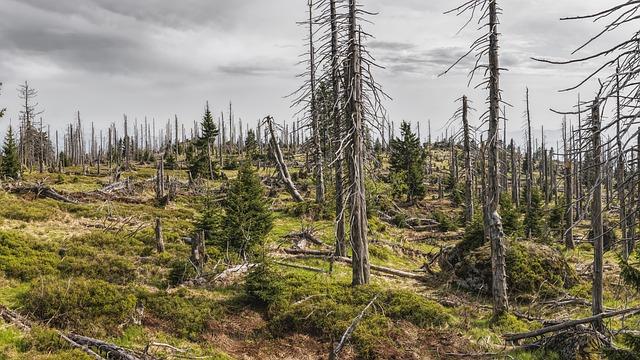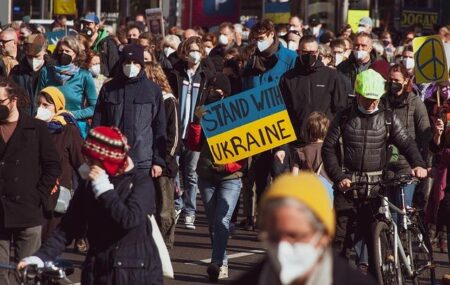In a significant shift in energy policy discourse, the Bavarian premier has publicly advocated for a revival of nuclear power in Germany. This call comes amid growing concerns over energy security and escalating costs, marking a departure from the country’s longstanding commitment to phasing out nuclear energy. The proposal has sparked intense debate among policymakers, industry experts, and environmental groups, highlighting the complex challenges facing Germany’s energy transition. DW reports on the implications of this development for the nation’s energy landscape and political dynamics.
Bavarian Premier Advocates Nuclear Energy Revival Amid Climate Concerns
Bavaria’s Premier has reignited debate over Germany’s energy future by pushing for a revival of nuclear power amidst growing climate concerns. With energy security and emissions reduction becoming critical priorities, the premier argues that nuclear energy offers a reliable, low-carbon alternative to fossil fuels and intermittent renewables. This proposal comes as Germany faces rising energy costs and increasing pressure to meet its climate targets, especially in light of global geopolitical uncertainties affecting gas supplies.
The premier outlined key benefits of nuclear energy in a recent statement:
- Stable energy output: Unlike solar and wind, nuclear plants provide consistent baseload power regardless of weather conditions.
- Low carbon footprint: Nuclear reactors produce minimal greenhouse gas emissions during operation.
- Energy independence: Reduced reliance on imported fossil fuels and volatile markets.
| Energy Source | COâ‚‚ Emissions (g/kWh) | Reliability |
|---|---|---|
| Nuclear | 12 | High |
| Coal | 820 | High |
| Wind | 11 | Medium |
| Solar | 45 | Medium |
Analyzing the Economic and Environmental Implications of Nuclear Power in Germany
Germany’s ongoing debate about nuclear energy reflects a complex balancing act between economic growth and environmental responsibility. The Bavarian premier’s recent advocacy for a nuclear comeback underscores shifting attitudes amid energy security concerns and rising costs associated with renewable energy integration. While nuclear power offers a consistent and high-output energy source, critics highlight expensive decommissioning processes and long-term waste management as significant economic burdens. Additionally, the potential for stabilizing electricity prices could help industries dependent on steady energy supply, though the initial capital investment remains substantial.
Environmental considerations further complicate the picture. Nuclear facilities produce minimal greenhouse gas emissions during operation, making them an attractive tool in Germany’s efforts to reduce carbon footprints. However, questions linger about the impact of uranium mining and the unresolved challenge of radioactive waste disposal. The contrast between the intermittent nature of renewables like wind and solar and the baseload reliability of nuclear is driving policymakers to re-evaluate energy portfolios.
- Economic advantages: Stable energy prices, job creation in nuclear sector, reduced reliance on energy imports
- Economic challenges: High upfront costs, expensive plant maintenance, long-term waste management expenses
- Environmental pros: Low operational emissions, strong contribution to carbon neutrality goals
- Environmental cons: Radioactive waste concerns, uranium mining impact, nuclear accident risks
| Aspect | Impact | Notes |
|---|---|---|
| Investment | High | Requires billions in infrastructure |
| Energy Security | Strong | Reduces reliance on imported fossil fuels |
| Carbon Emissions | Low | Mainly from lifecycle, not operation |
| Waste Disposal | Complex | Long-term storage remains unsolved |
Policy Recommendations for Integrating Nuclear Energy into Germany’s Renewable Strategy
To effectively incorporate nuclear power into Germany’s ambitious renewable energy framework, policymakers must champion a balanced approach that emphasizes safety, sustainability, and economic viability. Key priorities should include:
- Modernizing regulatory frameworks to streamline licensing while upholding rigorous safety standards
- Investing in advanced nuclear technologies such as small modular reactors (SMRs) to enhance flexibility and reduce waste
- Ensuring transparent public engagement to build trust and address social concerns around nuclear energy
- Facilitating grid integration techniques that harmonize nuclear baseload with variable renewable sources like wind and solar
Strategic alignment is also essential between federal and state governments to foster cohesive energy planning. Below is a simplified comparison of projected capacity contributions under different energy mix scenarios:
| Energy Source | Scenario A: No Nuclear | Scenario B: Nuclear Included |
|---|---|---|
| Wind & Solar (%) | 75 | 65 |
| Nuclear (%) | 0 | 20 |
| Hydropower & Others (%) | 25 | 15 |
Integrating nuclear power could potentially stabilize the energy supply while reducing reliance on fossil fuels during periods of low renewable generation, making a compelling case for nuclear as a complementary pillar in Germany’s green transition.
Closing Remarks
As Germany continues to navigate its complex energy transition, the Bavarian premier’s call for a nuclear comeback injects a fresh and contentious voice into the national debate. With energy security and climate goals at the forefront, how Berlin responds to these regional appeals will be critical in shaping the future of the country’s power landscape. Stakeholders and observers alike will be watching closely as discussions unfold in the coming months.




